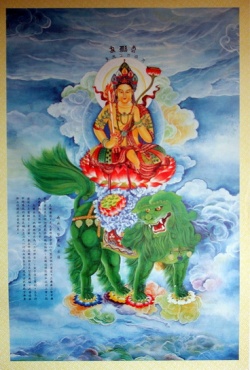Difference between revisions of "Lokayata"
Jump to navigation
Jump to search
(Created page with "thumb|250px| <poem> '''Lokayata''' [順世外道] (Skt, Pali; Jpn Junse-gedoor Junsei-gedo) One of the non-Buddhist schools in ancient India, also ...") |
|||
| Line 9: | Line 9: | ||
[http://www.sgilibrary.org/search_dict.php www.sgilibrary.org] | [http://www.sgilibrary.org/search_dict.php www.sgilibrary.org] | ||
[[Category:Buddhist Terms]] | [[Category:Buddhist Terms]] | ||
| − | + | ||
[[Category:Cārvāka]] | [[Category:Cārvāka]] | ||
Revision as of 22:02, 17 July 2013
Lokayata
[順世外道] (Skt, Pali; Jpn Junse-gedoor Junsei-gedo)
One of the non-Buddhist schools in ancient India, also known as the Char-vaka school. It held that human existence is no more than a temporary combination of the four elements of earth, water, fire, and wind. The Lokayata followers denied the existence of both past and future lives, and advocated the pursuit of pleasure in this life as the highest goal. Ajita Kesakambala, one of the so-called six non-Buddhist teachers in Shakyamuni's time, is regarded as a forerunner of this school.
